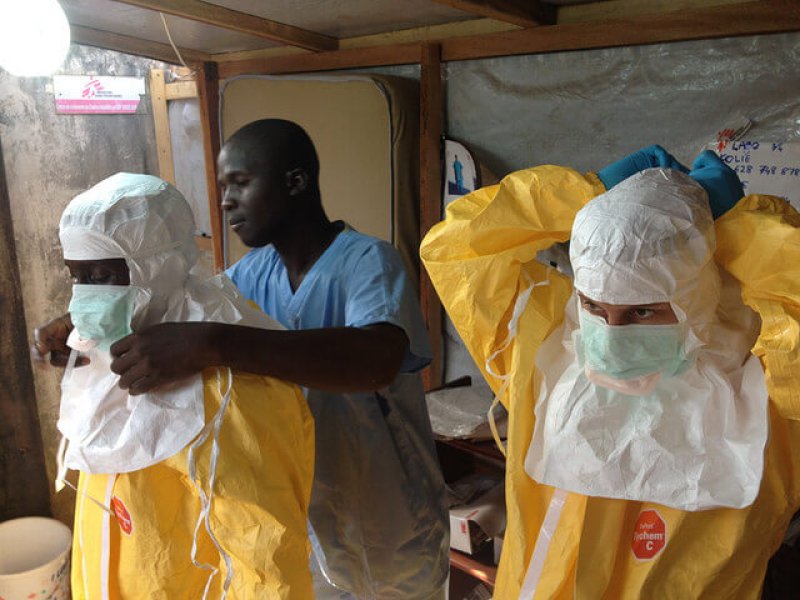Susan Sherman of Louisville, Kentucky went to Kenya on a medical mission trip. Upon her return, the school where she teaches asked her to take a 21 day leave of absence because of parent’s Ebola concerns. Never mind that Kenya is literally a continent away from the West African nations where the outbreak is located. It would be the equivalent of canceling a trip to Maine because of whooping cough in Oregon or refusing travel to St. Paul because of a case of West Nile Virus in Houston.
Sherman refused to take the quarantine and has since resigned from her position at the school, but the episode beautifully illustrates a brutal human reality: We are terrible at evaluating risk. In no area is our fallibility more pronounced that when it comes to our health, writes Jane Brody at the New York Times:
What health risks do you worry about, and how do those concerns affect your behavior? Do you become anxious after learning of a new or increasing threat, no matter how remote?
Or do you ignore the risk of developing a common and possibly life-threatening ailment like heart disease or the flu, resisting protective measures and persisting in behaviors even if they increase your risk?
In an ideal world, people would base medical decisions on an unbiased evaluation of available evidence. But people are often irrational, and many, perhaps most, of their actions are driven more by emotion than facts.
Health risks like Ebola play heavily with two factors known to increase our fears. One has to do with the rarity and exotic nature of a risk. Ebola or pancreatic cancer are much less likely to kill anyone in the United States than is heart disease, but our brains are not set up to process the frequency of a heart disease death. Instead, we focus on the handful of extraordinary events. They aren’t accruing over time like the things that often kill us writes Maia Szalavitz at Psychology Today:
Humans are ill-prepared to deal with risks that don’t produce immediate negative consequences, like eating a cupcake or smoking cigarettes. As a result, we are less frightened of heart disease than we should be. Heart disease is the end result of actions that one at a time (one cigarette or one french fry) aren’t especially dangerous. But repeated over the years, those actions have deadly consequences. “Things that build up slowly are very hard for us to see,” says Kimberly Thompson, a professor of risk analysis at the Harvard School of Public Health. Obesity and global warming are in that category. “We focus on the short-term even if we know the long-term risk.”
Most long term health risks fit this category. They build over decades, are fairly mundane and don’t garner the same headlines as an outbreak.
Another problem is the emotional content of a risk engages with the primal flight-or-fight systems in our brains, so we react well before we actually have time to comprehend the true risk of what’s happening. And this is only made worse when comparing modern risk to those risks our ancient ancestors feared, disease likely being one of them:
Emotions are decision-making shortcuts. As a result of these evolved emotional algorithms, ancient threats like spiders and snakes cause fear out of proportion to the real danger they pose, while experiences that should frighten us—like fast driving—don’t. Dangers like speedy motorized vehicles are newcomers on the landscape of life. The instinctive response to being approached rapidly is to freeze. In the ancestral environment, this reduced a predator’s ability to see you—but that doesn’t help when what’s speeding toward you is a car.
These are all the same reasons why the idea of mandatory quarantines for health workers who’ve been working with Ebola patients are widely supported but the idea that your kid would need a flu shot for preschool is considered outrageous. This is despite the fact that true evaluation of risk proves an American child is much more likely to be gravely injured or die from seasonal flu than from Ebola.
Because of this fallacy it’s important for us to rely on our established healthcare systems, rather than politicians or concerned parents, when we make sweeping policies that infringe on people’s basic human rights for doing a good thing, like helping stop the Ebola crisis. In the U.S., medical experts are trained to look beyond their initial emotional reactions to truly evaluate risk and correctly respond. That is not to say there have not been some snafus with the American response to stateside Ebola infections, as Brody notes. Hopefully we’ll be able to put our emotions aside to better serve those who have served in the face of the epidemic.
Meredith Knight is editor of the human genetics section for Genetic Literacy Project and a freelance science and health writer in Austin, Texas. Follow her @meremereknight.
Additional Resources:
- Risk and science: Should some virus research be forbidden? Genetic Literacy Project
- Too much and too little: Delicate balance of knowing risk and treating disease, Genetic Literacy Project
- Advanced cancer screenings find early, slow growing cancers more often than fast aggressive ones, Genetic Literacy Project































